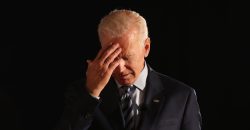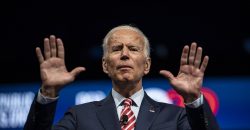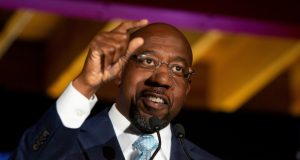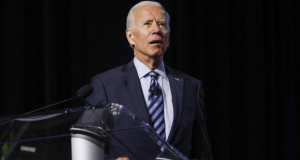Joe Biden’s Record on Free Trade and China
In the context of the 2020 presidential primary, the progressive wing will be battling with Biden as the most prominent and unabashed free trade advocate in the race.
June 13, 2019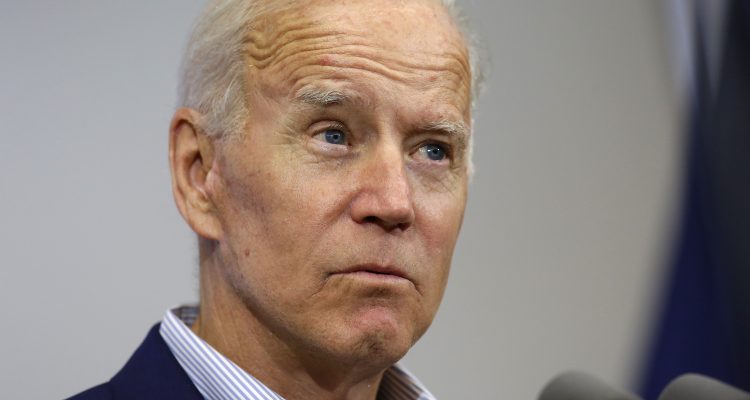
Joe Biden is severely out of step with the Democratic party on the issue of trade. The rest of the 2020 primary field and the party base have been clearly hostile towards free trade.
NAFTA and other free trade agreements have long drawn criticism from labor organizations, which are indispensable sources of political contributions and support for the Democratic party. The issue is emerging as more than just a priority for the unions, though. Vox makes the argument that the 2020 primary is setting up to realign the Democratic Party on trade — the free traders of old in Presidents Clinton and Obama against the more trade skeptical progressive wing led by Bernie Sanders and Elizabeth Warren.
In the context of the 2020 presidential primary, the progressive wing will be battling with Biden as the most prominent and unabashed free trade advocate in the race. Biden has an established and deep history as an advocate for free trade, and his opponents are ready to use it against him.
Biden has already garnered a lot of criticism from comments in May 2019 downplaying China as an economic threat to the United States.
Sanders responded to Biden’s downplaying of China as an economic threat:
SANDERS: “Since the China trade deal I voted against, America has lost over 3 million manufacturing jobs. It’s wrong to pretend that China isn’t one of our major economic competitors. When we are in the White House we will win that competition by fixing our trade policies.”
In a June swing through Iowa, Biden sought to clarify his remarks on China not being a threat. However, his long-standing record as a Senator and Vice-President paints a different picture than the new campaign rhetoric on the trail.
In 2009, Obama’s U.S. Trade Representative reported that “significant questions have arisen regarding China’s adherence to ongoing WTO obligations, including core WTO principles.”
Numerous times during the Obama presidency, the U.S. Trade Representative included in a report to Congress that significant trade distortions have been generated by “the Chinese government’s interventionist policies and practices and the large role of state-owned enterprises and other national champions in China’s economy.” The administration also sounded the alarm regarding serious problems with China’s enforcement of intellectual property rights along with access to the Chinese market by foreign companies.
In 2017, the outgoing Obama Administration implied that the future of global trade will be a choice between the United States and China.
Biden’s dovish approach to China doesn’t come solely from his days as Vice-President. As a Senator, Biden consistently resisted cracking down on China.
In 1997, Biden voted against an amendment that would have expressed the sense of the Senate that China’s most-favored-nation trade status should be revoked. The status provides the receiving nation the best possible trade terms that the originating country offers, thereby ensuring China was offered the same trade terms as other nations, mostly close allies, with the same status.
In 2000, Biden supported permanent normal trade relations with China, even voting against enforcement mechanisms to ensure China was upholding human rights, labor, and environmental standards as a condition of the new status.
During his short-lived 2008 Presidential campaign, Biden stated that he was “willing to take the Prime Minister of Canada and the President of Mexico to the mat” to amend NATFA. However, Biden was unwilling to discuss the prospect of placing tariffs on China.
Biden’s trade record contrasts with priorities of the labor movement and isn’t merely limited to his dovish approach to China. Biden was considered the “leading pitchman” for the Trans-Pacific Partnership, a free trade agreement vehemently opposed by labor. He was even willing to go as far as passing TPP during the lame duck session following the 2016 election to better dodge opposition from unions and Democrats skeptical of the agreement. The Intercept reported at the time that China could take advantage of TPP without actually being a part of the deal, effectively providing China the benefits while not enforcing the oversight mechanisms signing partners of the agreement had to abide by.
As the primary unfolds, Biden will continue to have to answer questions on trade from Democrats skeptical of his past record. He also will have to deal with criticism from President Trump, who has taken a strong approach to combat China’s trade and economic activities.
Keep tabs on the Democrats. Sign up for news.
Keep tabs on the Democrats. Sign up for news.

